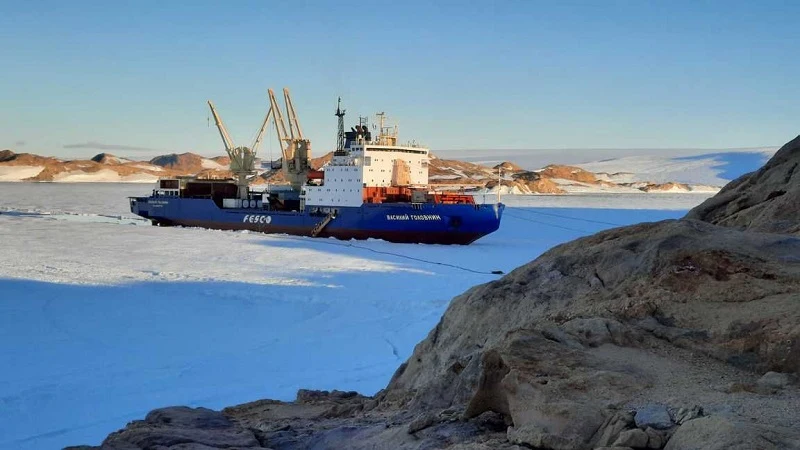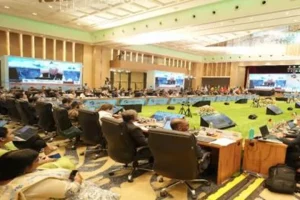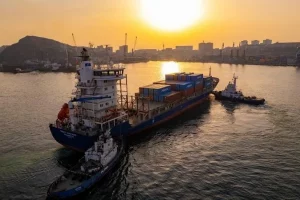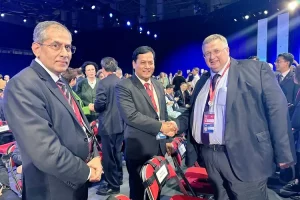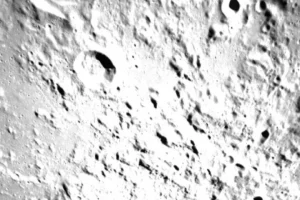Russian icebreaker ship Vasily Golovnin completed yet another successful return journey to the South Pole earlier this week during which it delivered cargo to two Indian and one Belgian research station on the coast of Antarctica.
The diesel-electric ship delivered a team of Indian polar explorers, fuel, provisions, and also took out household and technical garbage from the Indian Antarctic research stations Bharati and Maitri.
This was the second Antarctic expedition carried out by FESCO, one of the largest private transport and logistics companies in Russia, under a new five-year contract with the National Centre for Polar and Ocean Research (NCPOR) – India’s premier R&D institution responsible for the country’s research activities in the polar and Southern Ocean realms.
On 04 April 2023 the Expedition vessel MV Vasily Golovnin reached Capetown at 23:29 hours (UTC+02) after her successful voyage to #Antarctica.
Earlier, the vessel sailed from India Bay, Maitri Antarctica at 16:00 Hrs (UTC+02) on 26th March 2023.#42ISEA @Ravi_MoES pic.twitter.com/4ofm0EZFOB— NCPOR (@ncaor_goa) April 6, 2023
Prior to this, the Russian logistics major had been supplying the stations for three years in a row under the previous contract.
The diesel-electric ship Vasily Golovnin set sail on January 20 from Cape Town and returned safely to the South African port on April 4.
It also made a call at the Belgian Antarctic station ‘Princess Elisabeth’, returning to Cape Town with more than 100 tonnes of household and technical waste from the southern white continent.
The company stated that due to difficult ice conditions, the unloading of equipment for the Maitri station was carried out by a crane on the edge of the glacier, the height of which exceeded the height of the side of the Vasily Golovnin. Drifting icebergs also added to the difficulties for FESCO sailors.
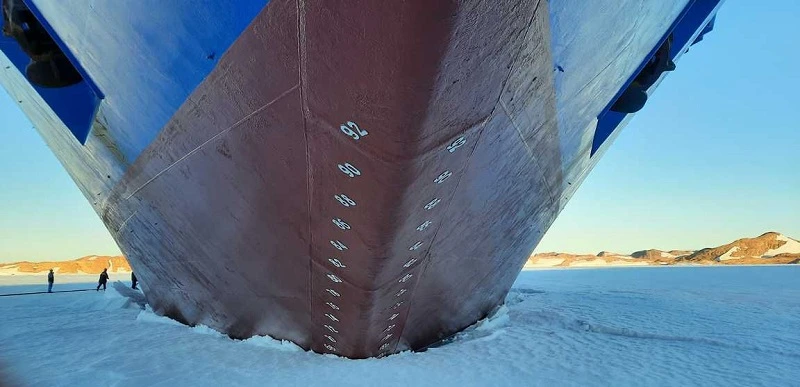
“Upon the ship’s return to Cape Town, the director of the NCPOR Antarctic Operations Group, Dr. Shailendra Saini, noted that all the tasks assigned to the Vasily Golovnin crew had been successfully completed. He also expressed his gratitude to the sailors for their well-coordinated and professional work during the expedition,” FESCO said in a statement.
India has built three permanent research base stations in Antarctica, named Dakshin Gangotri (1983), Maitri (1988) and Bharati (2012). As of today, Maitri and Bharati are fully operational.
Expedition vessel MV Vasily Golovnin was welcomed by #Aurora Australis on reaching India Bay. Due to inclement weather, the vessel is unable to berth. #42ISEA #Maitri @moesgoi pic.twitter.com/VVaKBmKIbI
— NCPOR (@ncaor_goa) March 17, 2023
NCPOR, the nodal agency for implementation of the Indian Antarctic Programme which began in 1981, has initiated proceedings for the 43rd Indian Scientific Expedition to Antarctica (XLIII ISEA) which is scheduled to be launched in October-November 2023.
FESCO is also playing a significant role in India-Russia discussions on the development of transport corridors along the Russia-India route and container traffic between Indian and Russian Far Eastern ports.
In the last week of March, Russia’s Minister for the Development of the Far East and the Arctic Alexei Chekunkov held extended meetings with representatives of Indian companies based in Mumbai and also met Ports, Shipping and Waterways Minister Sarbananda Sonowal.
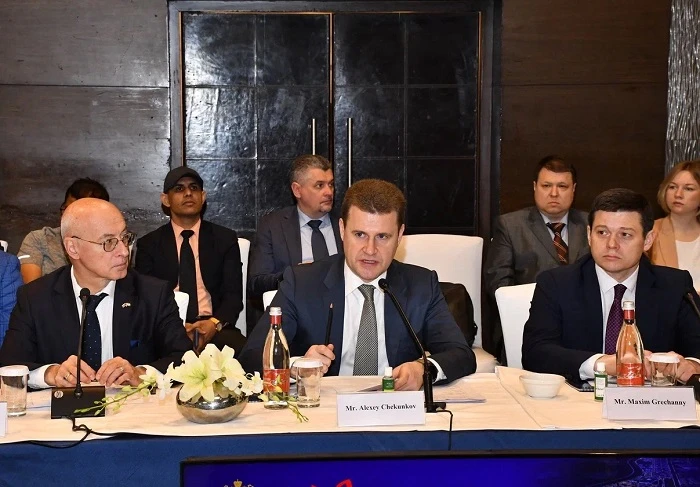
FESCO Vice President for Linear Logistics Division German Maslov, who also accompanied the Russian delegation, spoke about the group’s intermodal services from India to Moscow, Yekaterinburg, Novosibirsk and Khabarovsk through the main ports of the country.
Later, in his meeting with Indian cargo owners based in Delhi, Maslov noted the growing container turnover between India and Russia and the current services between Indian ports and Vladivostok, Saint Petersburg, Kaliningrad and Novorossiysk, as well as the routes that the Group plans to launch in the near future.






